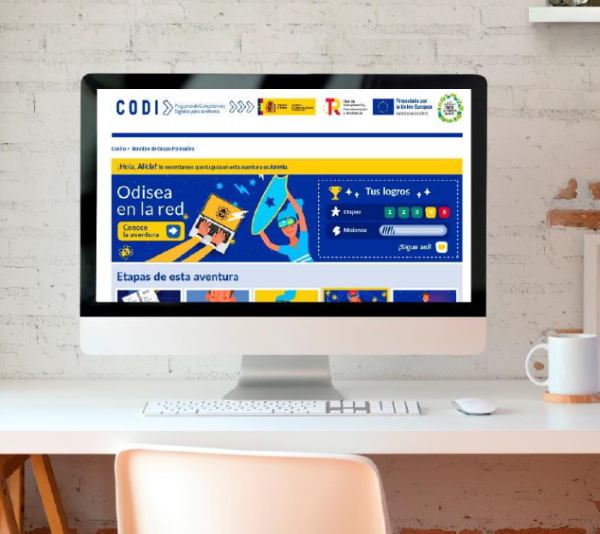
The "Digital Skills for Children" (CODI) program is part of the Recovery, Transformation, and Resilience Plan and it was created under the action "Digital Skills to Fight Child Poverty," framed in Measure 3 of Investment Line 1 of Component 19 of said Plan. The program is endowed with 220 million euros, and its goal is to train 950,000 children, adolescents, and young people at risk of digital exclusion. To achieve this goal, the Secretary of State for Youth and Childhood, the body responsible for the project, places a special focus on minors who are currently in vulnerable situations.

Currently, vulnerable children, adolescents, and young people living in households with socioeconomic difficulties face a triple digital disadvantage:
- Inequalities in internet access.
- In the available equipment.
- In how they use new technologies.
Considering that other public initiatives already exist to reduce the gap in internet access and the lack of equipment, the Secretary of State for Youth and Childhood has focused its efforts on deploying, through various means and in collaboration with other administrations and Third Sector entities, the "Digital Skills for Children" (CODI) program aimed at reducing the gap in digital skills and usage. PISA 2018 data for Spain show that while most kids from the most disadvantaged households make intensive use of the internet (52% spend an average of 4 to 6 hours daily on weekdays), half never or very rarely connect for homework. On the other hand, minors from higher socio-economic households make less intensive use of the internet, but two-thirds use the internet weekly or daily for homework.
Thus, the program's objectives are:
- Close the digital social gap by providing basic digital skills to children.
- Begin teaching advanced digital skills to vulnerable adolescents and young people, promoting employability with a gender perspective.

Automatically translated with OpenAI from Spanish